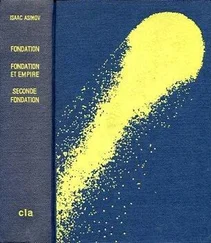Arcadia drew a deep breath and gave in. Huskily, she said, “I was born there.”
And Mamma clapped her hands gleefully, “One month we’ve been here and till now we met nobody from home. This is very nice. Your parents—” she looked about vaguely.
“I’m not with my parents,” Arcadia said, carefully.
“All alone? A little girl like you?” Mamma was at once a blend of indignation and sympathy, “How does that come to be?”
“Mamma,” Pappa plucked at her sleeve, “let me tell you. There’s something wrong. I think she’s frightened.” His voice, though obviously intended for a whisper, was quite plainly audible to Arcadia. “She was running—I was watching her—and not looking where she was going. Before I could step out of the way, she bumped into me. And you know what? I think she’s in trouble.”
“So shut your mouth, Pappa. Into you, anybody could bump.” But she joined Arcadia on the valise, which creaked wearily under the added weight, and put an arm about the girl’s trembling shoulder. “You’re running away from somebody, sweetheart? Don’t be afraid to tell me. I’ll help you.”
Arcadia looked across at the kind gray eyes of the woman and felt her lips quivering. One part of her brain was telling her that here were people from Trantor, with whom she could go, who could help her remain on that planet until she could decide what next to do, where next to go. And another part of her brain, much the louder, was telling her in jumbled incoherence that she did not remember her mother, that she was weary to death of fighting the universe, that she wanted only to curl into a little ball with strong, gentle arms about her, that if her mother had lived, she might . . . she might—
And for the first time that night, she was crying; crying like a little baby, and glad of it; clutching tightly at the old-fashioned dress and dampening a corner of it thoroughly, while soft arms held her closely and a gentle hand stroked her curls.
Pappa stood helplessly looking at the pair, fumbling futilely for a handkerchief which, when produced, was snatched from his hand. Mamma glared an admonition of quietness at him. The crowds surged about the little group with the true indifference of disconnected crowds everywhere. They were effectively alone.
Finally, the weeping trickled to a halt, and Arcadia smiled weakly as she dabbed at red eyes with the borrowed handkerchief. “Golly,” she whispered, “I—”
“ Shhh. Shhh . Don’t talk,” said Mamma, fussily, “just sit and rest for a while. Catch your breath. Then tell us what’s wrong, and you’ll see, we’ll fix it up, and everything will be all right.”
Arcadia scrabbled what remained of her wits together. She could not tell them the truth. She could tell nobody the truth—And yet she was too worn to invent a useful lie.
She said, whisperingly, “I’m better, now.”
“Good,” said Mamma. “Now tell me why you’re in trouble. You did nothing wrong? Of course, whatever you did, we’ll help you; but tell us the truth.”
“For a friend from Trantor, anything,” added Pappa, expansively, “eh, Mamma?”
“Shut your mouth, Pappa,” was the response, without rancor.
Arcadia was groping in her purse. That, at least, was still hers, despite the rapid clothes-changing forced upon her in Lady Callia’s apartments. She found what she was looking for and handed it to Mamma.
“These are my papers,” she said, diffidently. It was shiny, synthetic parchment which had been issued her by the Foundation’s ambassador on the day of her arrival and which had been countersigned by the appropriate Kalganian official. It was large, florid, and impressive. Mamma looked at it helplessly, and passed it to Pappa, who absorbed its contents with an impressive pursing of the lips.
He said, “You’re from the Foundation?”
“Yes. But I was born in Trantor. See, it says that—”
“Ah-hah. It looks all right to me. You’re named Arcadia, eh? That’s a good Trantorian name. But where’s your uncle? It says here you came in the company of Homir Munn, uncle.”
“He’s been arrested,” said Arcadia, drearily.
“Arrested!”—from the two of them at once. “What for?” asked Mamma. “He did something?”
She shook her head. “I don’t know. We were just on a visit. Uncle Homir had business with Lord Stettin but—” She needed no effort to act a shudder. It was there.
Pappa was impressed. “With Lord Stettin. Mm-m-m, your uncle must be a big man.”
“I don’t know what it was all about, but Lord Stettin wanted me to stay—” She was recalling the last words of Lady Callia, which had been acted out for her benefit. Since Callia, as she now knew, was an expert, the story could do for a second time.
She paused, and Mamma said interestedly, “And why you?”
“I’m not sure. He . . . he wanted to have dinner with me all alone, but I said no, because I wanted Uncle Homir along. He looked at me funny and kept holding my shoulder.”
Pappa’s mouth was a little open, but Mamma was suddenly red and angry. “How old are you, Arcadia?”
“Fourteen and a half, almost.”
Mamma drew a sharp breath and said, “That such people should be let live. The dogs in the streets are better. You’re running from him, dear, is not?”
Arcadia nodded.
Mamma said, “Pappa, go right to Information and find out exactly when the ship to Trantor comes to berth. Hurry!”
But Pappa took one step and stopped. Loud metallic words were booming overhead, and five thousand pairs of eyes looked startledly upwards.
“Men and women,” it said, with sharp force. “The airport is being searched for a dangerous fugitive, and it is now surrounded. No one can enter and no one can leave. The search will, however, be conducted with great speed and no ships will reach or leave berth during the interval, so you will not miss your ship. I repeat, no one will miss his ship. The grid will descend. None of you will move outside your square until the grid is removed, as otherwise we will be forced to use our neuronic whips.”
During the minute or less in which the voice dominated the vast dome of the spaceport’s waiting room, Arcadia could not have moved if all the evil in the Galaxy had concentrated itself into a ball and hurled itself at her.
They could mean only her. It was not even necessary to formulate that idea as a specific thought. But why—
Callia had engineered her escape. And Callia was of the Second Foundation. Why, then, the search now? Had Callia failed? Could Callia fail? Or was this part of the plan, the intricacies of which escaped her?
For a vertiginous moment, she wanted to jump up and shout that she gave up, that she would go with them, that . . . that—
But Mamma’s hand was on her wrist. “Quick! Quick! We’ll go to the ladies room before they start.”
Arcadia did not understand. She merely followed blindly. They oozed through the crowd, frozen as it was into clumps, with the voice still booming through its last words.
The grid was descending now, and Pappa, open-mouthed, watched it come down. He had heard of it and read of it, but had never actually been the object of it. It glimmered in the air, simply a series of cross-hatched and tight radiation-beams that set the air aglow in a harmless network of flashing light.
It always was so arranged as to descend slowly from above in order that it might represent a falling net with all the terrific psychological implications of entrapment.
It was at waist-level now, ten feet between glowing lines in each direction. In his own hundred square feet, Pappa found himself alone, yet the adjoining squares were crowded. He felt himself conspicuously isolated but knew that to move into the greater anonymity of a group would have meant crossing one of those glowing lines, stirring an alarm, and bringing down the neuronic whip.
Читать дальше
Конец ознакомительного отрывка
Купить книгу











